Research
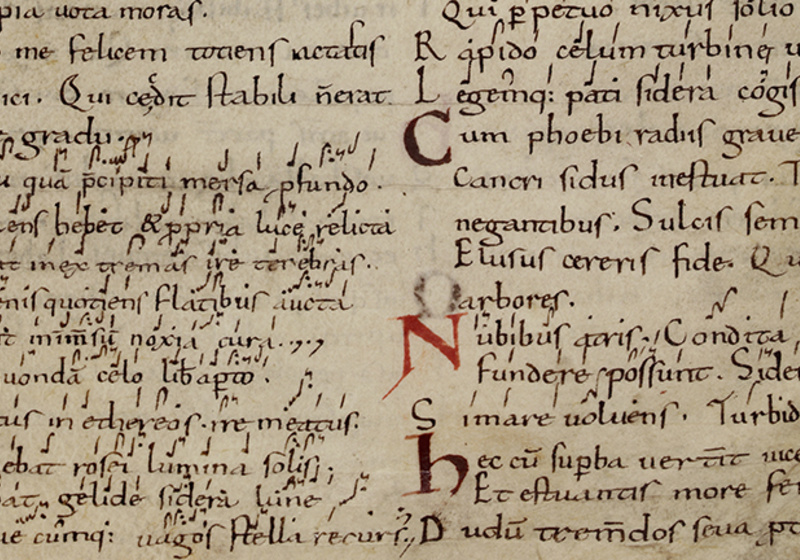
In this section you will find links to online versions of the surviving manuscripts that contain notations for Boethius’ De consolatione philosophiae.
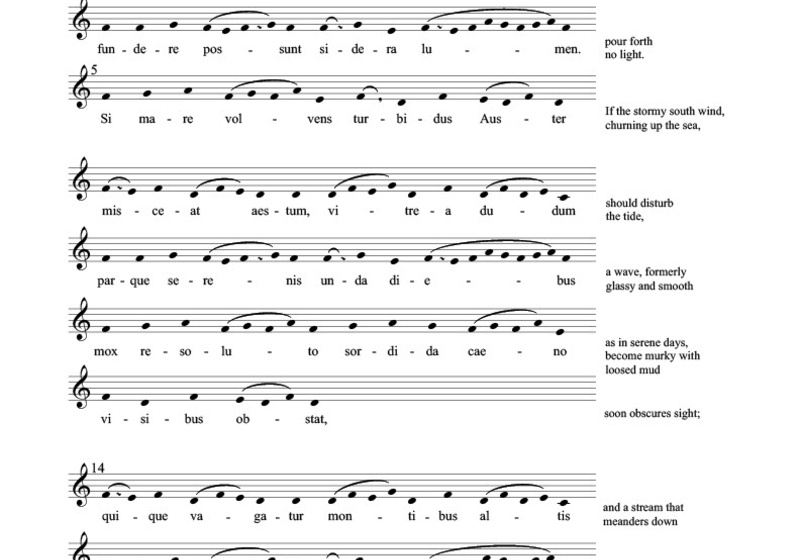
Completed reconstructions collected here, together with supporting explanations, provide melodic outlines that may serve as starting points for others to consider in preparation of their own performances.
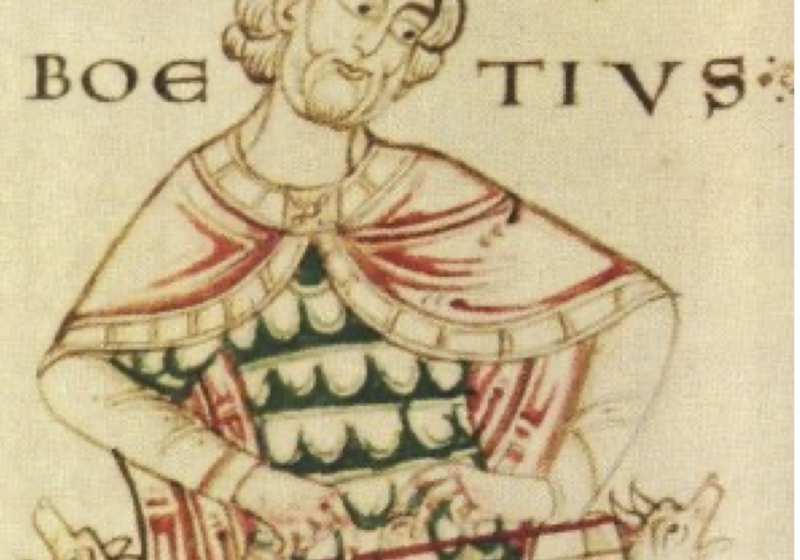
Were instruments involved in performances of songs from Boethius' De consolatione philosophiae in the early Middle Ages? If so, what did they play?
Video Resources
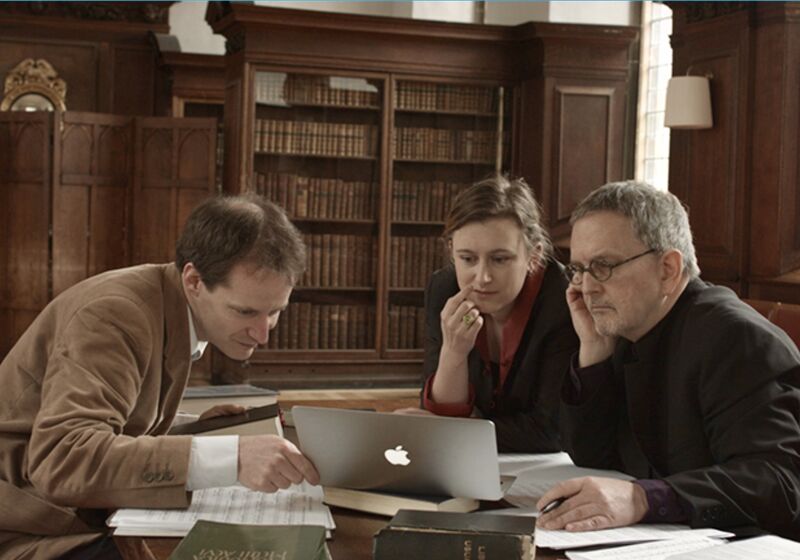
A documentary feature, introducing the story behind the Lost Songs Project
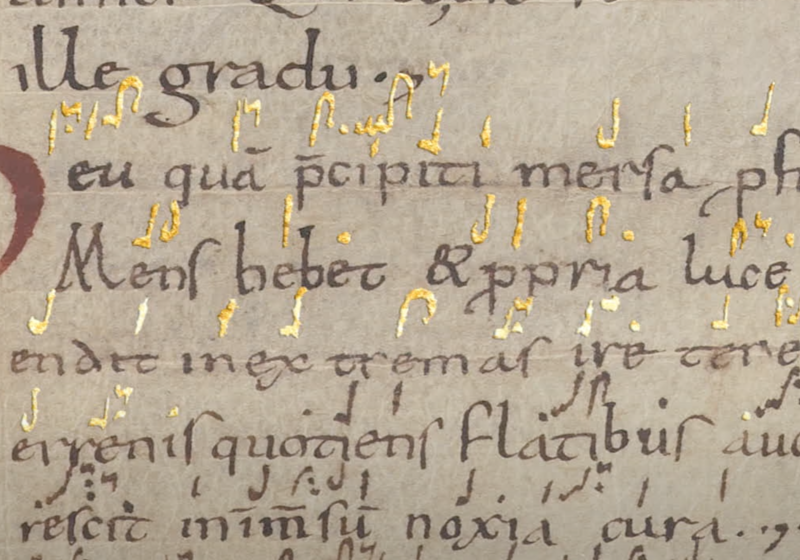
This series of videos introduces six of the reconstructed songs from Boethius' 'On the Consolation of Philosophy', as notated on the ‘Cambridge Songs’ Leaf.
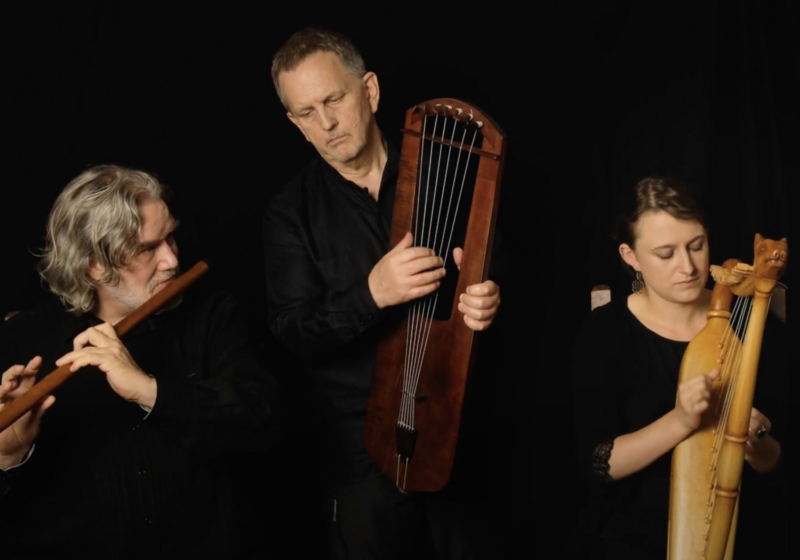
In this set of four videos, members of Sequentia speak about their instrumental practice in performing the reconstructed songs from Boethius' De consolatione philosophiae.
Audio Resources
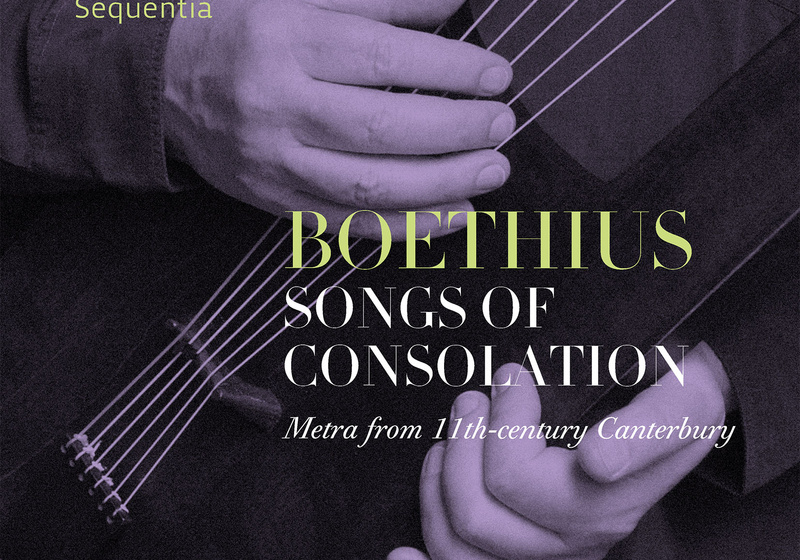
In June 2018, following several years spent working in collaboration with Sam Barrett, the renowned medieval music ensemble Sequentia released a CD on the Glossa Label of reconstructions of the songs of Boethius. Details of the CD can be found here.
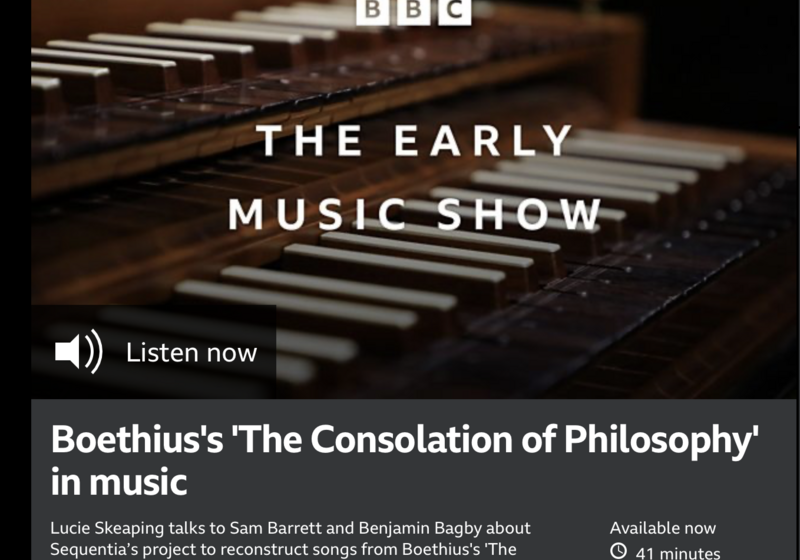
Lucie Skeaping talks to Sam Barrett and Benjamin Bagby about Sequentia’s project to reconstruct songs from Boethius's 'The Consolation of Philosophy’.
Text Resources
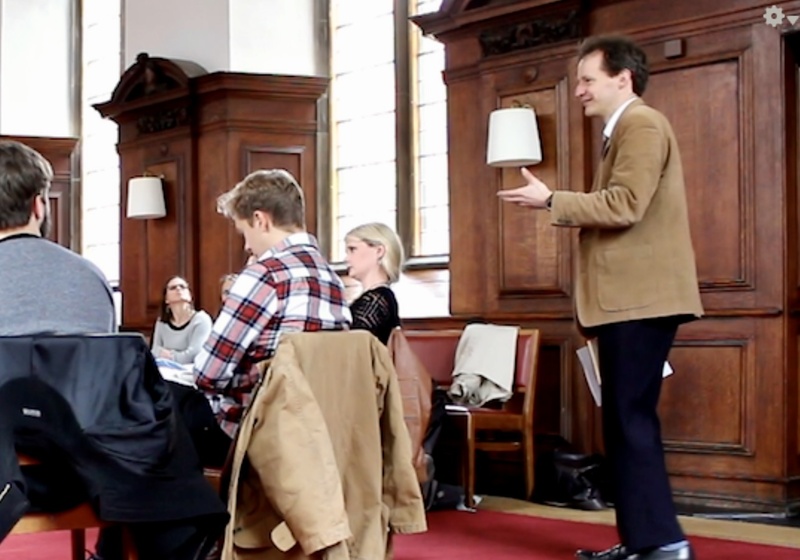
This new performance edition features the restored melodies of 6 songs from the recovered Cambridge Songs leaf.
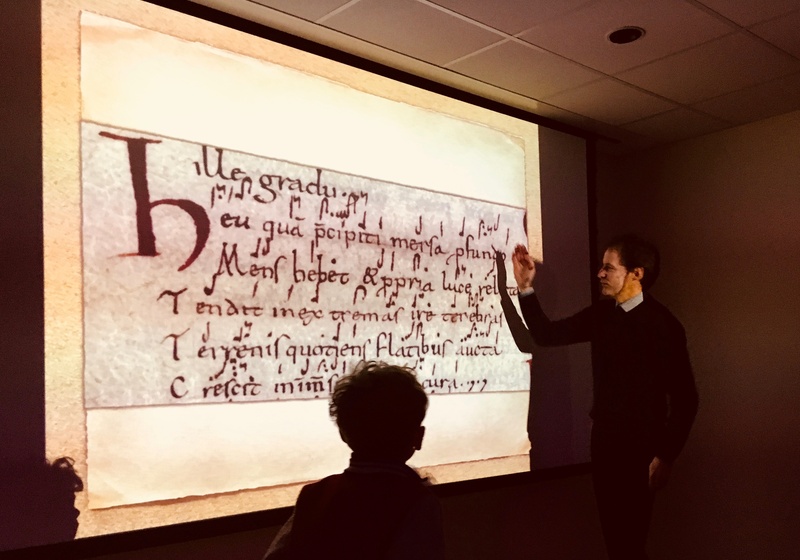
The following materials have been prepared as an educational resource suitable for students in Year 12 and above
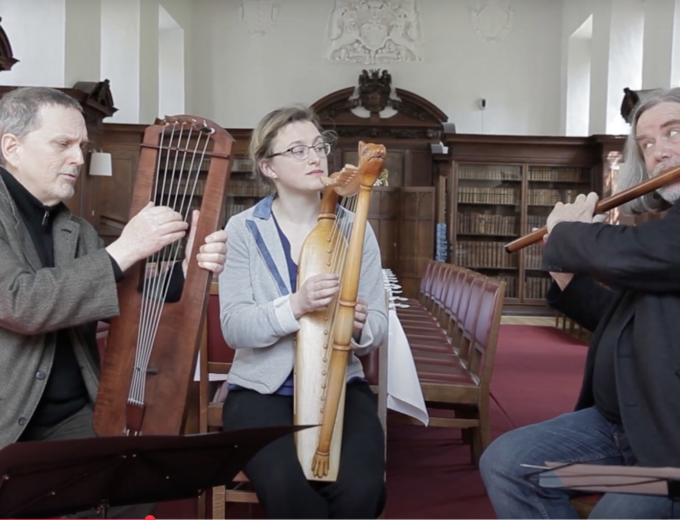
Sequentia Performances
These videos represent initial attempts at reconstructing two songs from the 'Consolation of Philosophy', performed by Sequentia at Pembroke College in 2016.
Quick Links
News
24 Oct 2024
Sam Barrett and Sequentia to present at the conference 'Boethius 524-2024', Charles University, Prague, 24-25 October 2024
17 Oct 2023
Restoring Lost Songs website included in the Medieval Digital Resources Database
19 Jul 2020
Singing Boethius's Lost Songs: New Videos Bring Neumes to Life
30 Jan 2020
Lost songs now freely available! New performing edition.
20 Jul 2019
Lost Songs Summarized: New Project Article Published
20 Jul 2019
Songs of Consolation named as one of allmusic's albums of 2018
